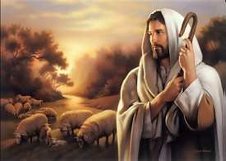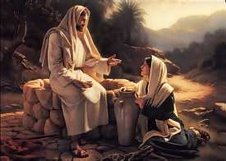"The gospel proclaimed to the world by the Latter-day Saints is the gospel of Jesus Christ as restored to the earth in this dispensation and is for the redemption of all mankind. The Lord himself has revealed what is essential for the salvation and exaltation of his children. One of these essentials is that temples are to be erected for the performance of ordinances that cannot be performed in any other place.
When this is explained to people from all over the world who come and look at our temples, the question these people most frequently ask is, what are the ordinances that are performed on temples?
In response, we often first explain the ordinance known as baptism for the dead. We note that many Christians believe that at the time of death, our status before the Lord is determined for all eternity, for did not Christ say to Nicodemus, "Verily, verily, I say unto thee, Except a man be born of water and of the spirit, he cannot enter into the kingdom of God" (John 3:5)? "Born of the water" is a symbol, or sign, of regeneration. It does not mean that baptism is necessary for salvation. Rather, baptism is the outward sign of an inward work of grace. The outward sign does not produce the inward grace.Yet we know that many people have died without the ordinance of baptism, and thus, according to Christ's statement to Nicodemus, they would be eliminated from entering into the kingdom of God. This raises the question, is God just?
The answer is, of course God is just. It is evident that the Savior's statement to Nicodemus presupposes that baptisms may be done for those who have died who have not been baptized. Latter-day prophets have told us that baptism is an earthly ordinance that can be performed only by the living. How then can those who are dead be baptized if only the living can perform the ordinance? That was the theme of the Apostle Paul's writing to the Corinthians when he asked this question:
'Else what shall they do which are baptized for the dead, if the dead rise not at all? why are they then baptized for the dead?' (Cor. 15:29) Footnote: those...who are baptized for the dead. The present tense suggests that at Cornith, people were currently being baptized for the dead. But because Paul does not give any more information about the practice, many attempts have been made to interpret the concept. Three of these: 1. Living believers were being baptized, so that they too, in a sense, would not miss out on baptism. 2. Christians were being baptized in anticipation of the resurrection of the dead. 3. New converts were being baptized to fill the ranks of Christians who had died. At any rate, Paul mentions this custom almost in passing, using it in his arguments substantiating the resurrection of the dead, but without necessarily approving the practice. Probably the passage will always remain obscure. (NIV Study Bible, footnote)
'In fact, as we study ecclesiastical history, we find that baptism for the dead was practiced by the early Christians. There was vicarious work for the dead at that time, and there is today. Indeed, vicarious work is not something new or strange to us. We remember that the Savior himself in a vicarious manner atoned for the sins of all mankind. Today, baptisms are again performed by the living in behalf of individuals who have died, as is also the laying on of hands for the bestowal of the gift of the Holy Ghost for these same deceased people. These ordinances for the deceased, however, are performed only in the house of the Lord.
The endowment is another ordinance performed in our temples. It consists of two parts: first, a series of instructions, and second, promises or covenants that the person receiving the endowment makes-promises to live righteously and comply with the requirements of the gospel of Jesus Christ. The endowment is an ordinance for the great blessing of the Saints-both living and dead. Thus it is also an ordinance performed by the living in behalf of deceased individuals; it is performed for those for whom baptismal work has already been performed.
Another temple ordinance is that of celestial marriage, where wife is sealed to husband and husband sealed to wife for eternity. We know, of course, that civil marriages end at death; but eternal marriages performed in the temple may exist forever. Children born to a husband and wife after an eternal marriage are automatically sealed to their parents for eternity. If children are born before the wife is sealed to her husband, there is a temple sealing ordinance that can seal these children to their parents for eternity, and so it is that children can be sealed vicariously to parents who have passed away.
In the ordinances of the temple, the foundations of the eternal family are sealed in place. The Church has the responsibility-and the authority-to preserve and protect the family as the foundation of society.
All of these priesthood temple ordinances are essential for the salvation and exaltation of our Father in Heaven's children. Therefore, it is of great interest that within the last two decades, three revelations relating to these matters have been added to the Doctrine and Covenants. We rejoiced when the revelation concerning the bestowal of the priesthood upon all worthy males was announced in 1978 by the first presidency. That announcement is Official Declaration-2 in the Doctrine and Covenants. Also, two other sections were added in the 1970's to the Doctrine and Covenants: sections 137 and 138. It is most significant that both these revelations pertain specifically to the work for the redemption of the dead.
Section 137 records a vision given to the Prophet Joseph Smith in the Kirtland Temple. In that vision, he saw his brother Alvin, who had departed this life, and his parents. The voice of the Lord came to him and said that "all who have died without a knowledge of this gospel, who would have received it if they had been permitted to tarry, shall be heirs of the celestial kingdom of God" (D&C 137:7)
Section 138 records a divine manifestation given to President Joseph F. Smith that also pertains to the work of redemption of the dead. President Smith had been pondering our Lord's visit to the spirit world as he read the First Epistle of Peter and reflected upon the verse that states, "For this cause was a the gospel preached also to them that are dead, that they might be judged according to men in the flesh, but live according to God in the spirit" (1 Pet. 4:6) Footnote: For this reason. The reason referred to is expressed in the latter part of the verse (in the "so that" clause), not in the preceding verse was preached even to those who are now dead. This was a past event. The word "now" does not occur in the Greek, but it is necessary to make it clear that the preaching was done not after these people had died, but while they were still alive. (There will be no opportunity for people to be saved after death; see Heb. 9:27.) (NIV Study Bible footnote)
'A vision then unfolded to President Smith. That vision is recorded in section 138. President Smith saw that "the Lord went not if person among the wicked and the disobedient who had rejected the truth, to teach them;
'But behold, from among the righteous, he organized his forces and appointed messengers, clothed with power and authority, and commissioned them to go forth and carry the light of the gospel to them that were in darkness, even to all the spirits of men; and thus was the gospel preached to the dead' (D&C 138:29-30) "For Christ died for sins once for all, the righteous for the unrighteous, to bring you to God. He was put to death in the body but made alive by the spirit, through whom also he went and preached in prison who disobeyed long ago when God waited patiently in the days of Noah while the ark was being built. In it only a few people, eight in all were saved through water,...." (1 Peter 3:18-20) The proclamation of Jesus was about His death and resurrection. It announced the victory over the evil one and everything is subject to Him. This passage of scripture has been torn apart by many research ministries, apologitics, and scholors. The footnotes in the NIV Study Bible, the Adam Clark's Commentary, and many others seem to have a slightly different interpratation. The Mormons have a take on it as well. I believe that the whole text of the Bible needs to be taken into consideration as well as Peter's background and to whom he was addressing, as well as the understanding of those people. Keep in mind that Peter was dealing with the sufferings that the Christian's had to go through at that time and this scripture points to Jesus Christ, through Him there is victory and that the enemy is defeated. The Mormon take on this is as follows: "And as I wondered, my eyes were opened, and my understanding quickened, and I perceived that the Lord went not in person among the wicked and the disobedient who had rejected the truth, to teach them; But behold, from among the righteous, he organized his forces and appointed messengers, clothed with power and authority [the priesthood], and commissioned them to go forth and carry the light of the gospel [Mormonism] to them that were in darkness, even to all the spirits of men; and thus was the gospel [Mormonism] preached to the dead." (D&C 138:29-30, brackets added)
'Surely we on this side of the veil have a great work to do. For in light of all the above-noted facts about temple ordinances, we can see that the building of temples has deep significance for ourselves and mankind, and our responsibilities become clear. We must accomplish the priesthood temple ordinance work necessary for our own exaltation; then we must do the necessary work for those who did not have the opportunity to accept the gospel in life. Doing work for others is accomplished in two steps: first, by family history research to ascertain our progenitors; and second, by performing the temple ordinances to give them the same opportunities afforded to the living.
Furthermore, the dead are anxiously waiting for the Latter-day Saints to search out their names and then go into the temples to officiate in their behalf, that they may be liberated from their prison house in the spirit world. All of us should find joy in this magnificent labor of love.
What a glorious thing it is for us to have the privilege of going to the temple for our own blessings. Then after going to the temple for our own blessings, what a glorious privilege to do the work for those who have gone on before us. This aspect of temple work is an unselfish work. Yet whenever we do temple work for other people, there is a blessing that comes back to us. Thus it should be no surprise to us that the Lord does desire that his people be a temple-motivated people. I repeat what I have said before: It would please the Lord for every adult member to be worthy of-and to carry-a current temple recommend, even if proximity to a temple does not allow immediate or frequent use of it. The things that we must do and not do to be worthy of a temple recommend are the very things that ensure we will be happy as individuals and as families." (First Presidency Message, A Temple-Motivated People, by President Howard W. Hunter, Ensign, Feb. 1995)
"The believers of Corinth were practicing many things that the Apostle Paul needed to correct. There were many problems within the church at Corinth. There were divisions and erroneous practices, sexual immorality, litigation in pagan courts, abuse of the Lord's Supper, false teaching concerning the resurrection and Paul needed to give instructions concerning the offering for poverty-stricken believers in Jerusalem. Corinth was a rich port town of that day and the endless pagan practices and beliefs were spilling into the Christian church during that time. It required Paul to write not one letter to the church there, but two. Every man must have two births: one from heaven, the other from earth-one of his body, the other of his soul. Without the first he cannot see nor enjoy this world; without the last he cannot see nor enjoy the kingdom of God. As there is an absolute necessity that a child should be born into the world, that he may see its light, contemplate its glories, and enjoy its good, so there is an absolute necessity that the soul should be brought out of its state of darkness and sin, through the light and power of the grace of Christ, that it may be able to see, or to "discern," the glories and excellences of the kingdom of Christ here, and be prepared for the enjoyment of the kingdom of glory in the hereafter... The new birth which is here spoken of comprehends not only what is termed justification or pardon but also sanctification or holiness. Sin must be pardoned and the impurity of the heart washed away before any soul can possibly enter into the kingdom of God." (Adam Clark's Commentary, Baker Book House, 1967, pg 903-904)
"When a person is saved, he is inwardly washed and cleansed by the word of God, and made alive spiritually by the Holy Spirit. All of this happens on the inside of every believer, not on the outside, so therefore John 3:5 has no reference to water baptism. (Answers to Your Bible Questions, Charles Halff, The Christian Jew Foundation. 1972, pg28)
The flood symbolizes baptism, and baptism symbolizes salvation. The act of baptism is an outward commitment on the part of the believer. Baptism is an outward symbol of an inward work in the heart and mind of the believer. It is in no way an ordinance or requirement in order to go to heaven. People are saved not by any ritual, but by the supernatural power of the resurrection which is done while the believer is still alive, not after death. Mormons construe the unclear parts of the scriptures to conform them to their own agenda.
"But the natural man receiveth not the things of the Spirit of God: for they are foolishness unto him: neither can he know them, because they are spiritually discerned." (1Cor. 2:14 KJV)
Baptism for the Dead and other Ordinances
Saturday, February 9, 2008











0 comments:
Post a Comment